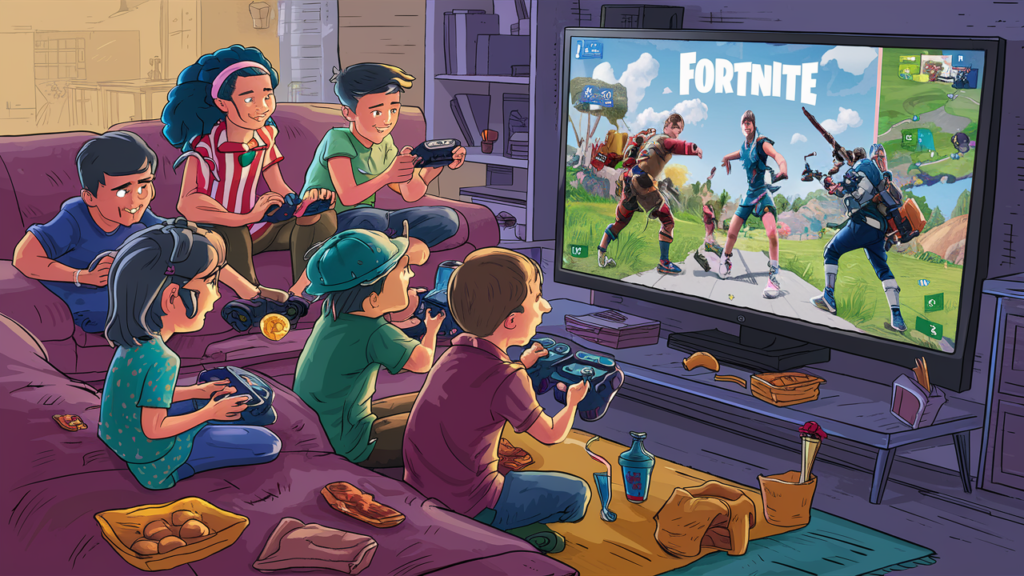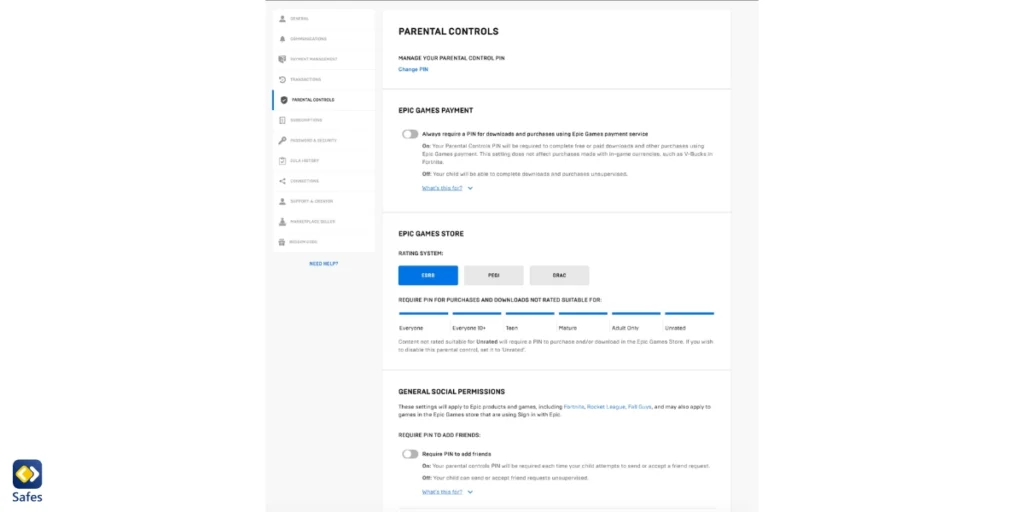Is Fortnite a game for 10 year olds?
Based on the ESRB rating and recommendations from Common Sense Media, “Fortnite” game is not considered suitable for 10-year-olds. The game is rated for teens and may expose younger children to risks such as online predators. It is recommended that parents supervise and ensure safety measures are in place before.
What Age Kids Should Play Fortnite?

Kids aged 11/12+ should be allowed to play Fortnite due to the competitiveness and lack of collaboration. ESRB and Common Sense Media recommend the game for teens aged 13+, citing risks like online predators. Parental supervision is crucial for younger children playing Fortnite to ensure safety and monitor exposure to harmful attitudes. It is essential to consider the potential dangers of the game and implement safety measures for younger players.
Why Fortnite is Not Suitable for 10 year olds?
- Everyone in the game sees themselves as enemies, fostering a competitive environment that promotes a lack of collaboration and friendship among players.
- Younger children who are still developing their cognitive abilities may struggle to understand the abstract concepts of the game and may struggle with distinguishing between real-life relationships and game dynamics.
- The game’s focus on aggression and violence, even in a cartoonish and exaggerated manner, may desensitize children to violence and aggressive behavior.
- Children under the age of 11 may not be able to ask themselves hypothetical questions or understand the deeper themes underlying the game, potentially impacting their worldview and relationships with others.
- Voice chat in multiplayer matches exposes children to potential dangers of speaking to strangers online, which may not be suitable for younger children.
- The addictive nature of the game, as likened to gambling by some experts, can be detrimental to younger children who may struggle to control their time spent playing the game.
The Concerns of Parents

Violence and Inappropriate Content
Additionally, it is important for parents to have open and ongoing conversations with their children about the games they are playing. Therefore, it is essential to set clear guidelines and boundaries for gaming activities. Furthermore, parents should consider alternatives to these types of games that are morefortnite 10 year age-appropriate and promote positive values. Consequently, by being involved and proactive, parents can help ensure their children’s gaming experiences are safe and suitable. Parents should be aware of the potential impact of violent media on desensitizing children to violence and consider the cognitive limitations of younger children in understanding complex themes present in the game. It is suggested that older children (11/12+) may be better equipped to handle the content of games like Fortnite.
Parents should engage actively with their children’s gaming habits, set limits on screen time, and establish open communication to ensure a healthy gaming experience. Utilizing parental controls on gaming platforms and devices can also help in managing and monitoring children’s access to games. If your child ever encounters bad behaviour, there are also a bunch of report tools to let them send reports to Epic Games for review, which can result in bans or suspensions for players who breach the game’s Community Rules. They can also block or mute individual players to avoid unwanted contact.allowing a child to play “Fortnite.”
Parental Control Settings
These steps are for parents who have question Is Fortnite a game for 10 year Olds? To set up parental control settings in Epic Games Fortnite, follow these steps:

- From the main menu, select the three-lined menu in the top corner and then the gear icon.
- Select PARENTAL CONTROLS to view the Fortnite parental controls menu.
- Next to WEEKLY PLAYTIME REPORTS, turn the option to ON. This will send a report to the email associated with the account.
- Explore other parental controls guides for additional screen time tools and settings.
- Use parental controls to turn off voice and text chat, filter mature language, hide your child’s in-game name, block in-app purchases, and set privacy settings for online friend groups.
- Set up a pin for in-app purchases to prevent unexpected charges on your bank statement.
- Talk to your child about playing only with people they know in real life and monitor their gameplay to ensure their safety online.
Setting Screen Time Rules
- Sit down with your child and have a discussion about setting screen time rules for playing Fortnite. Explain the potential risks associated with excessive screen time and spending money on in-game purchases.
- Decide on specific limits for how much time your child is allowed to play Fortnite each day or week. Consider factors such as age, school work, and other responsibilities.
- You should set boundaries for your child’s Fortnite playtime. They are not allowed to game before finishing their homework or after a certain time in the evening.
- Use parental controls or monitoring tools to help enforce the screen time rules. This can include setting up time limits on gaming devices or restricting certain features such as in-app purchases.
- Encourage your child to take breaks while playing Fortnite. Remind them to get up, stretch, and engage in other activities to prevent excessive screen time.
- Monitor your child’s behavior and reactions to playing Fortnite. Look out for signs of addiction or impulsive spending on in-game purchases.
- Be consistent and firm in enforcing the screen time rules you have set. Communicate with your child about the reasons behind the rules and the importance of balancing gaming with other activities.
Monitoring and Cyberbullying Risks

- Monitor your child’s gameplay: Keep an eye on who they are playing with and how they are interacting with other players. Look out for any signs of cyberbullying, such as negative comments or harassment.
- Encourage open communication: Talk to your child about the potential risks of cyberbullying in online gaming. Make sure they know they can come to you if they experience any form of bullying or harassment.
- Set boundaries: Establish rules with your child about proper behavior while playing online games. Let them know what is acceptable and what is not, and reinforce the importance of treating others with respect.
- Use parental controls: Take advantage of the parental controls available in Fortnite and on gaming consoles to limit your child’s exposure to inappropriate content and interactions. Disable voice chat if necessary.
- Educate your child on how to handle cyberbullying: Teach your child how to block and report players who are being abusive or engaging in cyberbullying. Ensure they know how to protect themselves online and seek help if needed.
By following these steps, you can help lessen the possibility of your child experiencing cyberbullying while playing Fortnite.
Conclusion
In conclusion, Fortnite is not suitable for children of 10 due to its mild violence and potential exposure to cyberbullying. Parents should be aware of the risks involved in playing the game and use parental controls to ensure their children’s safety while they play. Children aged 12 and 13 should be allowed to play Fortnite with supervision and guidance on how to navigate the online world responsibly. By taking these precautions, parents can help their children enjoy the game safely.






